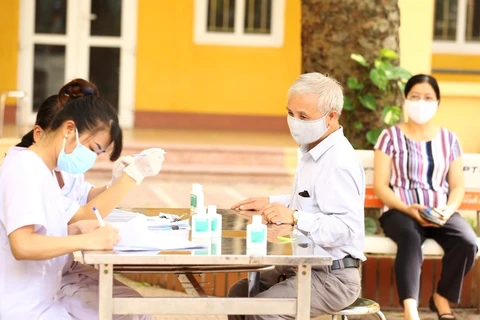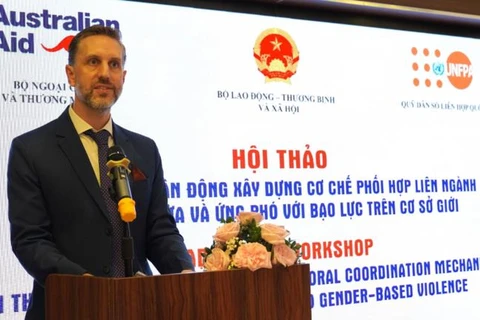 Executive Secretary of the United Nations Economic and Social Commission for Asia and the Pacific Armida Salsiah Alisjahbana (Source: UNFPA)
Executive Secretary of the United Nations Economic and Social Commission for Asia and the Pacific Armida Salsiah Alisjahbana (Source: UNFPA)Below is the full text of the article.
Asia and the Pacific is an economic powerhouse, fuelled by its vibrant and diverse population. Comprising 60% of the world’s population, this region is bursting with both a wealth of experience and untapped potential. Exciting advancements have been made here, in education; health care, including sexual and reproductive health; jobs, and sustainable development. Yet there is a catch: this progress has not been evenly distributed. In fact, inequity pervades the region, especially within individual countries.
Women still lose their lives during childbirth at alarming rates, and in many countries we have seen limited progress in reducing maternal mortality in the past decade. In several countries, less than 30% of women of reproductive age use contraception. Unemployment rates among young women remain high, reaching up to 25% in some places. Women are still struggling for a seat at the political table, with less than a quarter of national parliamentary seats being occupied by women in 35 countries across the region. Progress towards gender equality and women’s empowerment has been sluggish, creating a roadblock to sustainable development.
The region is particularly susceptible to the effects of climate change and environmental degradation, with disasters claiming 2 million lives since 1970. Financial losses from these calamities add up to 924 billion USD every year, eating up nearly 3% of the region’s GDP. Humanity’s environmental footprint has expanded dramatically. The region’s greenhouse gas emissions have risen by 54% since 1990, largely due to the energy and agricultural sectors.
Population ageing is another mega-trend affecting this part of the world. More people are enjoying longer and healthier lives, and in this new reality we need policies that adapt to these shifts and invest in every stage of life. Rather than perceiving older persons as a drain on resources, we should recognize them as individuals with human rights who make important contributions to society in various ways all the time. The same applies to persons with disabilities, migrants and other groups who have much to contribute, yet too often face stigma and discrimination. Let us build societies for people of all abilities and ages.
Over 60% of the population in the Asia Pacific region has access to the internet, and this has turbocharged development across many sectors. Nevertheless, these technological advances bring new challenges, from the digital divide between the haves and the have-nots, to privacy violations and a disturbing rise in technology-facilitated gender-based violence.
While it is important that we celebrate the region’s many achievements, we must simultaneously confront its population and development challenges. We have a unique opportunity to do so as we mark 60 years since the first Asian and Pacific Population Conference and 30 years since the International Conference on Population and Development – two important milestones on the path towards sustainable progress.
At the midpoint of the 2030 Agenda for Sustainable Development, as countries seek to accelerate action towards our global goals, we urgently need comprehensive, forward-thinking, intergenerational approaches to harness the opportunities of population dynamics for sustainable development. To be effective, such approaches must be based on individual human rights and rooted in evidence and data.
Innovative solutions, financing and political commitment through inclusive partnerships are our path forward. Let us ensure young and older persons have a voice in decision-making and in designing solutions. Let us tap into the goldmine of shared knowledge and proven methods we have built over the past few decades. Investing in people, through improved health, education and training, while providing social protection for all to retain development gains, lays the foundation for inclusive, just and sustainable societies. It is also our route to achieving the Sustainable Development Goals.
The Seventh Asian and Pacific Population Conference taking place this week is the perfect launchpad for collective action. Governments, civil society, young people and others can come together and make a real difference, building on their collective investments and successes to date. Together, we can protect people and the planet and ensure prosperity for all, now and in the future.
Let us refocus our actions to ensure human rights and choices for everyone, driving us closer to peace and a sustainable future for this generation and those that follow./.
VNA
























